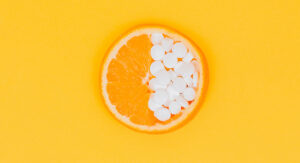Lately, we’ve been hearing and seeing a lot of somewhat questionable discussions around copper online and on social media. Copper/zinc ratios, artificial copper, bio-identical copper, and the list goes on and on. I think it is necessary to remind everyone that there is quite a bit of misinformation out there, and not everyone has your best interests at heart when they promote the “next big thing” in healthcare. Please know that the information I am presenting here draws from not just my own personal perspective, but from all of our experience at Mensah Medical (and before that at the Pfeiffer Treatment Center) treating patients with copper concerns over the past two decades, not to mention research that was conducted more than four decades ago that serves as the foundation for orthomolecular medicine that continues to guide our practice today.
First of all, I want everyone, especially all you under-methylated people out there, to stop worrying about copper/zinc ratios. It is not necessary to, at all costs, achieve a one-to-one ratio. It doesn’t work that way. You must think about copper and zinc as independent entities. The zinc has to be treated, and the copper has to be treated – independently! Especially doctors out there who might be paying attention to this, stop chasing numbers. All sorts of variables come into play.
This is particularly important when we are talking about copper. While we tend to try and avoid using the term “mental health” (I prefer cognitive dysfunction as it recognizes that something is not working right rather than implying ‘it’s all in your head’”), I think it is appropriate to use here. If you are suffering from something we would consider to be a mental health concern, such as anxiety, depression, ADD/ADHD, bipolar disorder, or schizophrenia, DO NOT TAKE COPPER!
Copper is a direct converter of the neurotransmitter dopamine, and it turns dopamine straight into adrenaline. When adrenaline is elevated you can get a rapid heartbeat, which can lead to increased anxiety, panic, depression, and much more. True story here – we once got a call from a patient of ours on the East Coast from the emergency room of her local hospital. Her local practitioner ascribed to that dreaded one-to-one zinc and copper ratio, and the patient’s zinc was very high. So the doctor gave our patient 50 milligrams of copper, and the next thing you know our patient ends up in the emergency room with panic disorder. We were able to work with the patient and the ER doctors to get her copper levels stabilized, but the overall moral of this story is, if you have a mental health concern, don’t even take the slightest amount of copper. It will most likely have a negative effect.
Another bit of copper misinformation that seems to be making the rounds in cyberspace these days is the suggestion that you need to do a hair analysis to determine if your copper levels are too high – if you see high copper levels in the hair, then you must be copper toxic. This could not be further from the truth. Hair is basically a toxin removal agent for your body. If you have high levels of copper in your hair, that doesn’t mean that you have high levels of copper inside. What it more likely means is that your body is doing a good job of processing the copper in your body and then eliminating it from the body through the hair.
You should also avoid using urinary challenge tests to measure copper (and another element) levels. These tests involve artificial processes that squeeze copper and other elements into your urine rather than measuring what is naturally floating around in the bloodstream. Both of these tests, urine challenge and hair analysis, can give you inaccurate information when it comes to copper toxicity. Use the appropriate testing, which is typically a serum copper test from a blood draw, to get an accurate accounting of your copper levels.
Once you have your true copper levels, be sure to work with an orthomolecular specialist to help you achieve balance. Do not try to treat yourself. And if you are, indeed, copper toxic, your specialist will likely tell you to avoid taking in excess copper from your diet and your environment – high copper foods like broccoli, spinach, avocados, and nuts might need to be limited; you may need to drink bottled water rather than tap water that runs through copper pipes, you might need to avoid using highly chlorinated swimming pools and spas. And, whether you are copper toxic or not, do NOT take copper supplements.



